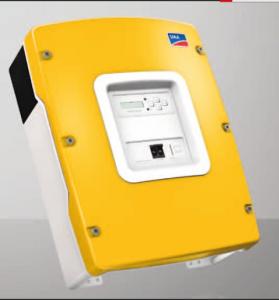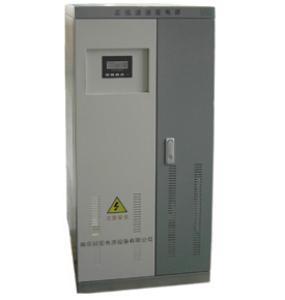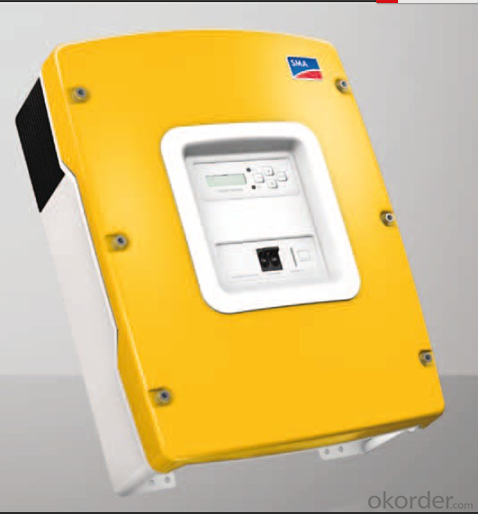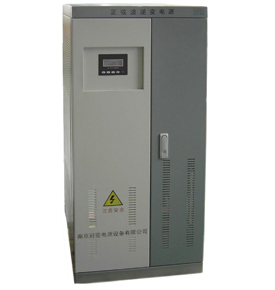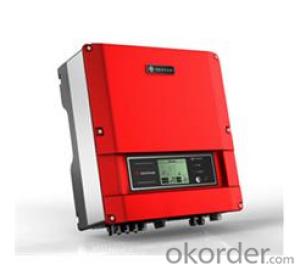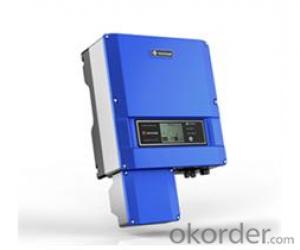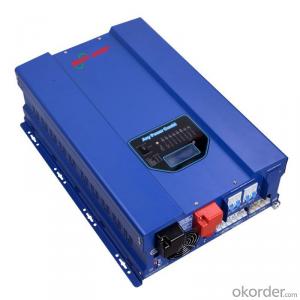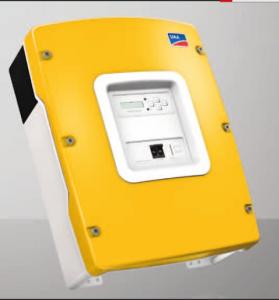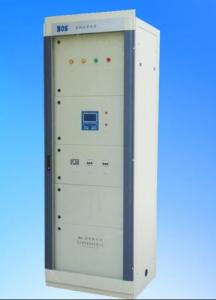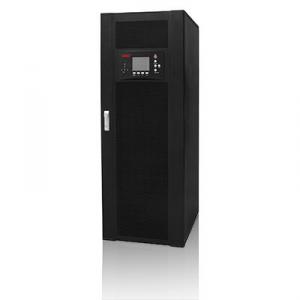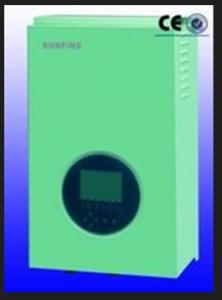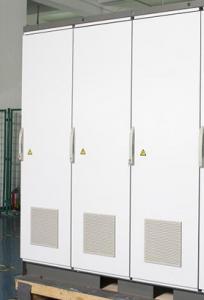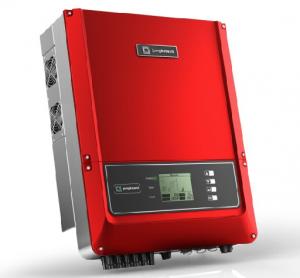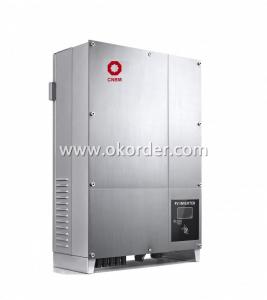Toroidal Solar Inverter PV Off-Grid Inverter GN-S-10KFS from China
OKorder Service Pledge
OKorder Financial Service
You Might Also Like
Description:
CNBMSOLAR is a world-leading and Vertical integrated manufacturer of high-performance with Silicon,
Wafer, Cells, Modules, which convert sunlight into electricity for residential, commercial, and utility-scale
power generation.
The capacity of CNBMSOLAR is reach to 1GW, and make sure each year our shipment capacity is more
Than 700-800MWs, at the same time, we have set up the largest solar power station with our partner
in Ukraine.
CNBM is a Quality + Service oriented company with“Excellence at Each Step” approach, composed of
the finest components from TUV and IEC-certified partners around the world, CNBM modules consistently
undergo a variety of trials at the company’s Test & Development Centre, ensuring peak performance
capabilities. The company is committed to develop and provide the world with clean and renewable energy
to ease the energy shortages as well as human kind’s impact on the environment.
Data:
'
Model | GN-□KFS□-□□V | ||
Rated Capacity(KVA) | 10 | ||
DC Input | Rated Voltage(VDC) | 216(VDC) | |
Low Voltage(VDC) | 194(VDC) | ||
Low Voltage Resume | 227(VDC) | ||
Load Overvoltage(VDC) | 300(VDC) | ||
Load Overvoltage Resume(VDC) | 297(VDC) | ||
Grid input | Input Voltage range | 220±15﹪(VAC) | |
Input frequency | 50±1(Hz) | ||
switching mode | 00、22、21 | ||
switching time | ≤10(ms) | ||
AC Output | output waveform | Sine wave | |
overload ability | 120% 1min | ||
output voltage | 220±3% | ||
Output frequency | 50±0.04(Hz) | ||
THD | ≤3℅(THD) | ||
Dynamic Response(0~100%) | 5% | ||
Inverter Efficiency | ≥90% | ||
Crest Coefficient(CF) | 3:1(CF) | ||
Continuous running time | Continuous running | ||
Display | LCD | ||
Content | DC voltage, dc current, voltage, utility line frequency, output voltage, output current, output frequency, output power | ||
Communication interface | RS232 | ||
Lightning protection device | NO | ||
Protection | Overcharge, over-discharge, overload, short circuit, reverse polarity, internal overheated protections, etc | ||
Dimensions(d\w\h mm) | 500*550*1200 | ||
Packing Size(d\w\h mm) | 590*640*1290 | ||
Reference weight(Kg) | 189 | ||
Protection class | IP20 | ||
Environment | Noisy(dB/meter) | ≤50 | |
Operating temperature(℃) | -20~+50(℃) | ||
Storage temperature(℃) | -25~+55(℃) | ||
Operating humidity | 0~95%(No condensation) | ||
Operating Altitude | ≤5000(m) | ||
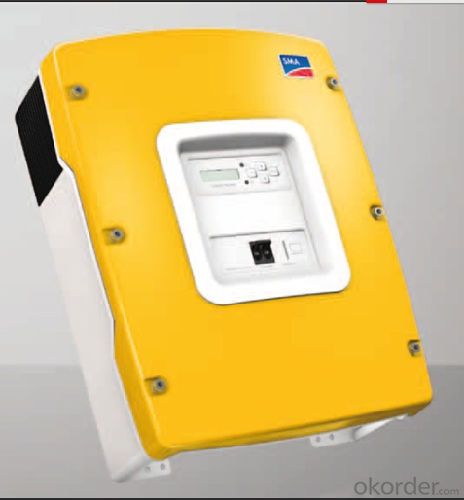
FAQ:Could you pls introduce more about CNBM?
CNBM Group is short for China National Building Materials Group Corporation, which is established in 1984 with approval from the State Council
CNBM Group is the largest comprehensive building materials industry group in China
The Group has a total asset of over RMB 360 billion, more than 180,000 employees and 17 subsidiaries
- Q: Can a solar inverter be used with different types of backup power sources?
- Yes, a solar inverter can be used with different types of backup power sources such as batteries, generators, or the utility grid. The inverter's role is to convert the DC power generated by solar panels into AC power that can be used by household appliances or fed back into the grid. It can seamlessly switch between different power sources, ensuring uninterrupted power supply and maximizing the utilization of renewable energy.
- Q: How does a solar inverter handle grid disturbances (voltage sags, swells, flickers)?
- A solar inverter handles grid disturbances such as voltage sags, swells, and flickers by employing various protective mechanisms. It actively monitors the grid's voltage levels and reacts accordingly to maintain a stable and reliable power output. During voltage sags, the inverter adjusts its output voltage to compensate for the drop and ensure a consistent energy supply. In the case of swells, the inverter quickly detects the excessive voltage and disconnects from the grid to prevent any damage. Flickers, caused by rapid voltage fluctuations, are minimized by the inverter's ability to rapidly respond and stabilize the power output. Overall, solar inverters play a crucial role in mitigating grid disturbances and safeguarding the solar power system's performance and longevity.
- Q: What are the signs of a faulty solar inverter?
- Some signs of a faulty solar inverter include a complete loss of power generation, inconsistent or fluctuating power output, error messages or fault codes displayed on the inverter, unusual noises or excessive heat coming from the inverter, and a lack of communication or connection with monitoring systems.
- Q: What is the role of a solar inverter in power factor correction?
- The role of a solar inverter in power factor correction is to convert the direct current (DC) generated by the solar panels into alternating current (AC) that can be used by the electrical grid. In doing so, the solar inverter ensures that the AC power being fed into the grid has a power factor close to unity, which means it is efficient and does not cause any unnecessary strain on the electrical system. This helps to improve the overall power quality and efficiency of the solar energy system.
- Q: What are the potential risks of over-discharging a battery connected to a solar inverter?
- The potential risks of over-discharging a battery connected to a solar inverter include reduced battery lifespan, damage to the battery cells, decreased battery capacity and performance, and potential safety hazards such as overheating or even battery failure.
- Q: How does a solar inverter handle reactive power?
- A solar inverter handles reactive power by implementing power factor correction technology. It actively measures the power factor of the system and adjusts the reactive power to ensure optimal performance and efficient energy conversion. This helps in maintaining a balanced and stable grid connection while minimizing power losses.
- Q: Can a solar inverter be used in locations with high humidity or extreme temperatures?
- Yes, solar inverters can be used in locations with high humidity or extreme temperatures. However, it is important to choose an inverter specifically designed for such conditions. High-quality inverters are built to withstand these environmental factors and often have protection features to ensure reliable performance and longevity in harsh climates.
- Q: Can a solar inverter be repaired or replaced if it malfunctions?
- Yes, a solar inverter can be repaired or replaced if it malfunctions. In many cases, minor issues can be resolved through repairs, such as replacing faulty components or fixing wiring problems. However, if the malfunction is severe or the inverter is beyond repair, it may need to be replaced with a new one.
- Q: Can a solar inverter be connected to a computer or smartphone?
- Yes, a solar inverter can be connected to a computer or smartphone. Many modern solar inverters are equipped with built-in Wi-Fi or Bluetooth capabilities, allowing them to connect to local networks. This enables users to monitor and control their solar system's performance and settings conveniently through dedicated software applications or web interfaces on their computers or smartphones.
- Q: How does a solar inverter provide ground fault protection?
- A solar inverter provides ground fault protection by continuously monitoring the flow of electricity between the solar panels and the electrical grid. If it detects any abnormal or excessive current leakage to the ground, it quickly shuts off the flow of electricity to prevent electrical hazards, such as electric shocks or electrical fires.
Send your message to us
Toroidal Solar Inverter PV Off-Grid Inverter GN-S-10KFS from China
OKorder Service Pledge
OKorder Financial Service
Similar products
Hot products
Hot Searches
Related keywords
